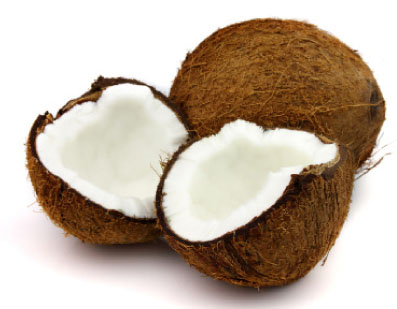Coconut, a fruit of the coconut palm, consists of a thick fibrous oval shell, a thin hard shell enclosing an edible white flesh. The hollow centre is filled with a fluid usually referred to as coconut water.
In Nigeria, the coconut palm is found mostly in the Southern states and in some marginal areas up to 100N. The largest coconut palm plantation is found in the Badagry Local Government Area of Lagos State, South West Nigeria.
The first coconut plantation in Nigeria was established in the 19th century by the Roman Catholic Mission in Badagry, and a good number of the palms are found along the beach, while most are found as home palms. It can also be found along banks of small streams and stagnant pools of water in some Northern states.
Coconut trees are generally classified into two general types: tall and dwarf. On very fertile land, a tall coconut palm tree can yield up to 75 fruits per year, but more often yields less than 30, mainly due to poor cultural practices.
In recent years, improvements in cultivation practices and breeding have produced coconut trees that can yield more. The coconut tree grows up to 30 metres (98 feet) tall, with pinnate leaves four to six metres (13 to 20 feet) long, and pinnae 60 to 90 centimetres long; old leaves break away cleanly, leaving the stem horizontal.
The coconut provides not only food, but also clothing, building materials and wood. Uncommon uses for coconut shells include the construction of gas masks. After the nuts are split in two and the edible flesh is removed, the cleaned and dried shells provide a variety of household utensils. These include ready-made drinking vessels, bowls for cooking and eating as well as a variety of spoons and cups. With little carving, coconut shells are crafted into salad and soup dishes.
Benefits of coconut water
The coconut is a natural water filter. It takes almost nine months for a coconut to filter every quart of water stored within its shell. This makes the resulting coconut water completely pure and sterile.
Coconut water is rich in natural vitamins (especially the B vitamins), minerals and trace elements, and a rich source of natural salts, especially potassium and magnesium.
It is full of amino acid
It is low in sugar
It fights ageing, contains compounds that seem to protect cells against ageing and cancer when drinking. For external use, it exfoliates and brightens skin.
Where there are areas with bad water, coconut water is a perfect substitution.
It provides energy.
Coconut water promotes heart health. Consuming foods or beverages rich in potassium, including coconut water, may help reduce the risk of hypertension and stroke.
It also promotes skin, hair and nail health.
Benefits of coconut oil
Unlike unsaturated fats found in canola, corn and other vegetable oils, as well as margarine that suppress metabolism, which makes it harder to lose weight – but easier to gain it, coconut oil, on the other hand, helps to increase thyroid function and boost metabolism.
Coconut oil can actually help one lose weight. Changing cooking oil from the unsaturated fat variety to coconut oil can help one lose those extra pounds. Increase in thyroid function and boosting metabolism are two important components to shedding unwanted pounds.
Other benefits
Coconut cream gotten from coconut fruit is one of the best skin treatment products one can use to achieve flawless skin. Unlike traditional skin creams, which can actually introduce fats and oils to the skin that will break it down over time, making it look older, creams derived from coconut oil can actually replenish the skin, giving it a more youthful and healthy glow than most other skin care products in the market.













